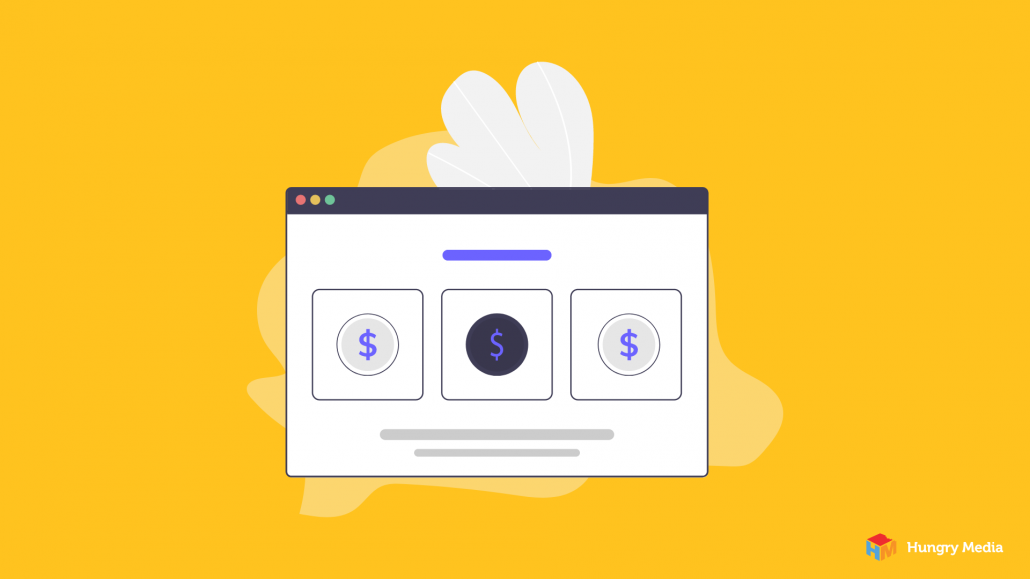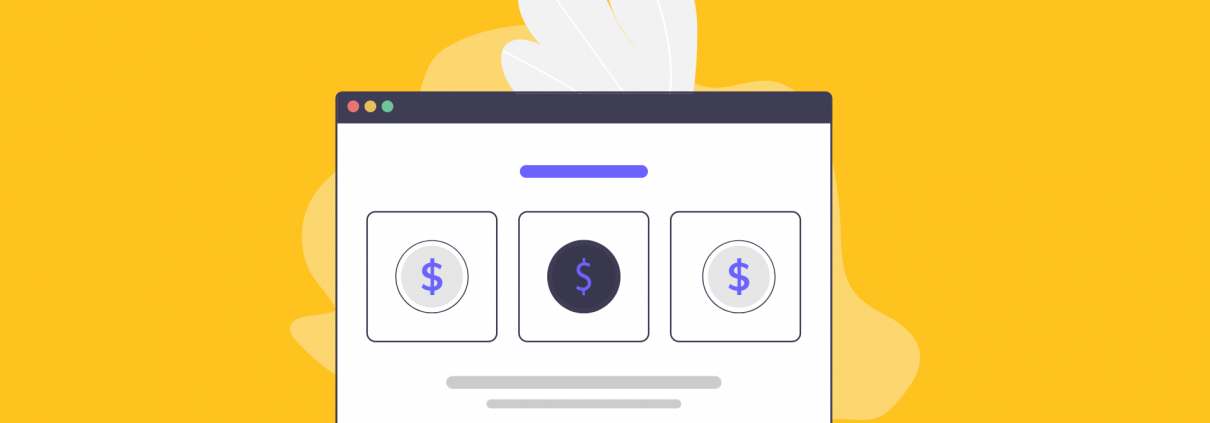
One of the first things many people question when they start creating web-based content is how to build and monetize a website. The good news is that learning how to monetize your website requires more consistency than skill. There are several ways to build an online income, and there are also several things to take into consideration before you begin to monetize your site.
Let’s start with a basic question. What is website monetization, anyway? It’s the process of converting web traffic into some sort of revenue. And while the answer is an easy one, the process isn’t quite that simple. Here’s what you need to know about monetization for websites.
Before You Monetize Your Website
Think about it this way. You’re not monetizing your website. You’re actually monetizing internet traffic. So, before you try to figure out how to make a monetized website, think about how to bring users to it. While there are certainly ways to make money without a large amount of traffic, the return on your investment will increase as your number of engaged users does the same.
Use SEO
First and foremost, users have to be able to find you. So, your site must be optimized for search engines. An understanding of SEO basics is more than enough to get you started here. Research keywords and use them strategically. Create descriptions to use in alt tags. Utilize title tags for your pages. All of these little actions will drive users to your site.
Design for User Experience
User experience design can go a long way to retain your users. When the people who visit your website find the experience pleasant – or better yet, don’t “notice” the experience – they’re likely to return. This is huge for your visibility, as it’s so much easier to keep users around than to find new ones. SEO and UX design are the one-two-punch of increased website traffic.
Be Mobile Friendly
Don’t even consider ways to monetize your website if you don’t have a mobile-first strategy, or at least a responsive design. More users access your website via mobile device than desktop or laptop. So, trying to monetize without first striving to capture mobile users is a waste of time and money.
Provide Quality Content
Unique, valuable content is key to keeping users once they find your site. Even if a user never comes back, you’re a step ahead if they found your content to be relevant and helpful. If they find you, but the content you’ve provided them doesn’t meet their needs, they won’t stick around long enough for your monetization strategies to be effective.
Build a Social Audience
A social media following is almost a must when it comes to driving traffic to your website. Aside from a Google search, social media channels are the most common way for new users to find you. The Balance has some fantastic tips for growing as social following.
How to Monetize Your Website
There are plenty of website monetization tools and tricks to consider as you try to earn an income from your website. As you work to decide which is best for you, keep in mind that you’re aiming to monetize website traffic, as opposed to the site itself. Think about your users and the way they interact with your site.
What do they do when they’re on your site? How long does each visit last? Are they sharing your site with friends? Do they comment on your posts? If you can really figure out what makes them tick, it will be that much easier to determine the most effective ways to monetize your website traffic.
Paid Membership
One of the simplest ways to monetize your website is to charge a fee for access to your content. You have to be very careful with this, though. There is so much free, often valuable, content available across the internet. You’ll need to make sure that the content you’re charging for is really special. Many websites opt to set up a paid section and pack it full of high-value extras not available on their free pages. This way you’re not alienating those who can’t, or don’t want to, pay, and are providing worthwhile content to those who do.
Affiliate Marketing
Affiliate marketing is one of the most popular methods to monetize your website these days, and for good reason. The bottom line is that you receive a “commission” for sharing another brand’s content or product. This is a favorite because there are so many ways to go about affiliate marketing while remaining authentic to yourself and your brand. Here are a few ideas:
- Product Reviews – Try a product out and provide a comprehensive, honest review.
- Tutorials – Use your experience to teach your audience how you use a particular product.
- Recommended Tools and Resources – Create a list of your favorite tools, products, and resources.
- Sponsored Posts – Write a blog (or social media) post centered around a particular product.
“Hire Me” Page
This one is so simple that it may not even cross your mind as a way to monetize your website. Add a page with a “hire me” button or form. Even if your website is your hobby, there’s no harm in putting it out there. You could offer your services in the form of anything from writing to photography to tax services.
Take donations
Similar to a “hire me” button, you could add a link to accept donations. If your content offers value, and you need the support, your users may be more than happy to contribute. If you opt to go this route, we have some great tips to help make fundraising for business a success.
Sell a Digital Product
Digital products are a huge hit these days. Regardless of the type of content you create, you can come up with some sort of digital product to sell at a relatively low cost to your audience.
- E- book – An ebook sharing some of your favorite tips, tricks, stories, anecdotes, or anything else you can compile might be a hit with a devoted following.
- Online course – Similar to the e-book, you could develop a video-based course surrounding something that you’re great at and have passion for. It could be anything from how to make amazing sushi to the best way to train your dog. The sky’s the limit, and if your content is valuable, people will be more than willing to pay to learn from you.
- Digital downloads – Depending on your niche, low-cost digital downloads of things like checklists, how-to guides, photo filter packs, website themes, and so much more can add up quickly.
Merchandise
You can make products yourself or outsource production, but either way, getting creative with merchandise can go a long when trying to monetize your website. Coffee mugs with your favorite saying, t-shirts highlighting your brand, even simple sticker decals – could all be favorites among your loyal audience.
Display Ads
And then, of course, there’s the obvious. Sell advertising space. You can go about this in two ways. Either way, using display ads means that a third-party company will be placing advertisements on your website for your users to see – kind of like an internet billboard.
If you don’t have a detailed understanding of how to get advertisers on your website, you can use a service like Google AdSense to do the marketing and ad placement for you. Or, of course, you can do the sales and placement work yourself, if that’s your thing.
What to Avoid When Trying to Monetize Your Website
While there are no hard and fast website monetization rules, at the end of the day your users’ experience has to remain a top priority. Otherwise, you’ll lose the audience that provides you with income.
That said, just be careful not to go overboard. Too many sponsored posts, requests to purchase your e-book, or ads that slow down your site can all be detrimental to user experience, and thus potential monetization. You want your users to feel as though they’re getting something from you, not the other way around.
Hungry Media can Help Monetize Your Website
One of the statements we hear most often is “I want to monetize my website, but I don’t know how.” Hungry Media does! We can help you build a website, implement strategies to monetize web traffic, and even create a complementary mobile app if you want. If you can dream it, we can build it, and we can’t wait to turn your dream into a reality. Contact us today to get started!
contributed by Melissa Lucas, senior staff writer



